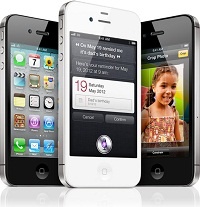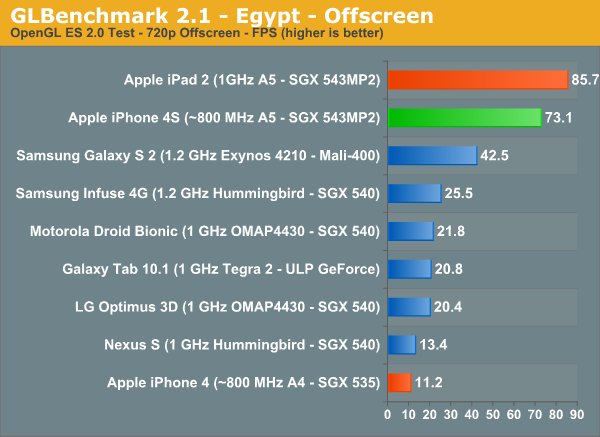 While Apple does not reveal the exact specifications of its processing units, it appears that the new dual-core A5 chip in the iPhone 4S is underclocked to 800MHz, 200MHz less than the same chip in the iPad 2.
While Apple does not reveal the exact specifications of its processing units, it appears that the new dual-core A5 chip in the iPhone 4S is underclocked to 800MHz, 200MHz less than the same chip in the iPad 2.
Apple says the iPhone 4S has web browsing speeds twice as fast as the iPhone 4 and "7 times the graphic performance." The SunSpider Javascript benchmark, (run by AnandTech for browser speed) measured the 4S at 2,222ms compared to the iPhone 4's 3,921ms.
For the performance claim, Apple scored 73.1 on the GLBenchmark 2.1 compared to 11.2 for the iPhone 4.
Given the benchmark tests, the site believes the clock speed to be around 800Mhz, but as a dual-core it has significant improvements from the A4, which was underclocked to 800MHz, as well, albeit with a single core.












